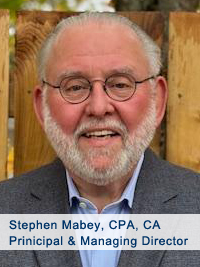The Side Effects of Covid
In full disclosure, I am not a medical Doctor, and this article's focus is the non-medical side effects of Covid. In particular, the side effects that require law firms and their leadership-focused attention include the following:
Societal Withdrawal Sociability, he described as a "desire to interact with people, especially a comfort level in initiating new, intimate connections with others." Dr. Richard shared that low scorers are "less inclined to enjoy interacting with others, may prefer to spend more time dealing with information, the intellect, or interactions that emphasize the mind rather than the heart." Enter a pandemic that saw lawyers spend almost two years working in isolation, avoiding developing new relationships, and minimizing their existing ones. With the pandemic in as much containment as likely possible, firms are incorrectly assuming that lawyers will pick up where they left off before the pandemic. Those that found it difficult to embrace sociability will find it even more challenging as the "tools" required have grown duller from a lack of use. This withdrawal will directly impact business development and a willingness to return to the office full-time to practice law. To overcome this, firm focus should be on:
Scattered Uncertainty
Shortly after the pandemic was understood to be a "game changer," most law firms recognized that they had to ensure the following:
I would see this as "focused uncertainty" for lack of brilliance on my part. While they may not have known the results/outcomes, they did know where to focus. Today, not only are the results/outcomes continuing to be unknown, but the number of issues requiring the focus of law firm leaders has exploded. This has created "scattered uncertainty" in that firms are now uncertain about what topics should receive the most significant focus and the timing of this focus. These Issues are as follows:
A common factor in dealing with these uncertainties is that the "heart" will be involved in the solutions. This runs contrary to the preference of most lawyers who'd rather spend their time dealing with information, the intellect, or interactions that emphasize the mind rather than the heart.
Escape from Management / Leadership A recent Thomson Reuters Institute study indicated that many leaders wanted to return to law practice and turn away from firm administration. While understandably wishing to do what you were trained to do, practice law, the satisfaction that used to be derived from guiding firms has steadily declined. The era of partners wanting to take on the mantle of management/leadership for the remainder of their careers is ending. The low level of resilience that is a common trait in lawyers is a contributing factor. A lack of solid resilience suggests a self-protective quality or defensiveness. This, combined with the high levels of Autonomy exhibited by many lawyers, has enshrined the perception that managing lawyers is like "herding cats."1 The old saying that "one stops beating their head against a brick wall cause it feels good" has started to take on new meaning for law firm leaders. There has been no real stress break after two years of focused efforts during the height of the pandemic, and signs of burnout are increasing in law firm leaders' ranks. Unsustainable Financial Results Many firms reported that late 2020 and 2021 were their best financial years. Unfortunately, many of these same firms will not hold out in 2022 in the same regard. Many partners did not probe into why they benefited from such financial rewards, instead adopting to take the money and run (aka spend). The anticipated demand to bring back pre-covid expenses (travel, conferences, retreats, and other perks) and unprecedented salary increases have driven up overheads to new heights. Unfortunately, at the same time, revenues have declined as clients seem to have an earlier understanding of the economic times they were entering. It is fair to assume that the flatness or even work decline will continue for some time. If firms have not adjusted their rates, doing so now could negatively impact the work they receive going forward. Another recent Thomson Reuters report indicated,
The escalating compensation wars (remember the Covid bonuses, retention bonuses, double-digit salary increases) have come home to roost, and clients are reluctant to participate in the law firm "battles." In classic law firm reaction, the "stealth layoffs" have already started, and I anticipate they will become public early in 2023. Not to be too much in the face of law firms, but a simple reminder that the definition of insanity is "doing the same thing over and over and expecting a different result!" Fundamental Structural Change
Note: I am not declaring the historical partnership structure to be dead, just like the billable hour is not finished. Conclusion To my way of thinking, size has less to do with who will sail through the recession and more to do with the insight captured by Darwin when he made the following comment:
Given the likely timing of this article going into circulation, I hope everyone slows down and enjoys the seasonal festivities, and I wish you all the best in 2023.
Stephen Mabey is a CPA, CA and the Managing Director of Applied Strategies, Inc. Stephen's focus is on law firms in general and on small to medium size law firms in particular. He has written about and advised on, a wide range of issues including – leadership, business development, marketing, key performance indicators, strategic planning, mergers, practice acquisitions, competitive intelligence, finance, mergers, practice transitioning, compensation, organizational structures, succession and transition planning, partnership arrangements and firm retreats. In 2013, Stephen was inducted as a Fellow of the College of Law Practice Management in recognition of his sustained commitment to the highest standards of professionalism in law practice management. For more information, visit appliedstrategies.ca or connect with Stephen Mabey on LinkedIn. |

